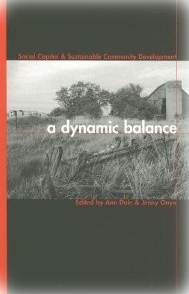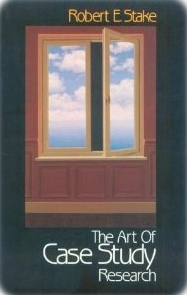Dale, A. (2001). At the Edge: Sustainable Development in the 21st Century. Vancouver: UBC Press
At the Edge is scintillating, thought-provoking work, which reaches out to its readers and invites them to exert agency and innovation. Clear evidence is mounting on the degree of environmental damage that is occurring throughout the globe, and this ecological degradation is tightly linked with social deterioration and economic decline. These increasing pressures are threatening the health of our planet and the very existence of human societies; however, as Ann Dale compassionately argues, it is not too late to take action.  We can break free from this rapidly accelerating downward spiral through sustainable development, which Dale describes as the process of reconciling three imperatives: the ecological, the social, and the economic. What is necessary to for the continuance of humans and other Earthy species is for us to adopt a new approach to governance; one that focuses on human responsibility and interconnectedness between human and non-human systems.
We can break free from this rapidly accelerating downward spiral through sustainable development, which Dale describes as the process of reconciling three imperatives: the ecological, the social, and the economic. What is necessary to for the continuance of humans and other Earthy species is for us to adopt a new approach to governance; one that focuses on human responsibility and interconnectedness between human and non-human systems.
Dale, A. and J. Onyx (eds). (2005). Dynamic Balance: Social Capital and Sustainable Community Development. Vancouver: UBC Press.
A Dynamic Balance illustrates linkages between social capital and sustainable development and discusses these linkages in the context of local community development. Of the three imperatives of sustainable community development (the social, the economic, and the ecological), the social dimension is least understood. This book recognizes this gap in understanding, and thus it illuminates the significance  of the social elements within community and how these elements can be mobilized for effective sustainable community development. The book draws upon applied research conducted on rural communities (predominantly Australian and Canadian) to show that the dialectics of sustainable development contain the keys to tackling issues that commonly threaten the collapse small, single-resource economy communities.
of the social elements within community and how these elements can be mobilized for effective sustainable community development. The book draws upon applied research conducted on rural communities (predominantly Australian and Canadian) to show that the dialectics of sustainable development contain the keys to tackling issues that commonly threaten the collapse small, single-resource economy communities.
Stake, R. (1995). The Art of Case Research. California: Sage Publications.
The Art of Case Research describes a reliable and credible qualitative research approach that incorporates naturalistic, holistic, ethnographic,  phenomenological, and biographic elements. The book uses an actual case study to explain how cases are selected, how findings from one case can be applied to another, and how cases can be interpreted. The book also discusses differences between qualitative and quantitative research, the roles of the research, data collection, pattern analysis, and reporting.
phenomenological, and biographic elements. The book uses an actual case study to explain how cases are selected, how findings from one case can be applied to another, and how cases can be interpreted. The book also discusses differences between qualitative and quantitative research, the roles of the research, data collection, pattern analysis, and reporting.